I am programming c# in VS2010 and have been testing out a plugin called ReSharper. In my experience I feel it cleans up the code and simplifies unnecessary logic. However one of the main problems it picks up all over my code is when I am initializing variables.
Resparper recommends initializing wit "var"
int i = 0 ----> var i = 0
or...
MyClass1 MyClass = new MyClass(1)
I always thought that using var had a slight overhead and seems kind out lazy or loosely types (although I do realize it has some advantages). I have been having trouble trying to find if there is a good reason to initialize variables like this. Reshaper says that using var is a controversial issue but it has good augments to use for initialization. Does anyone know what this may or may not be?
